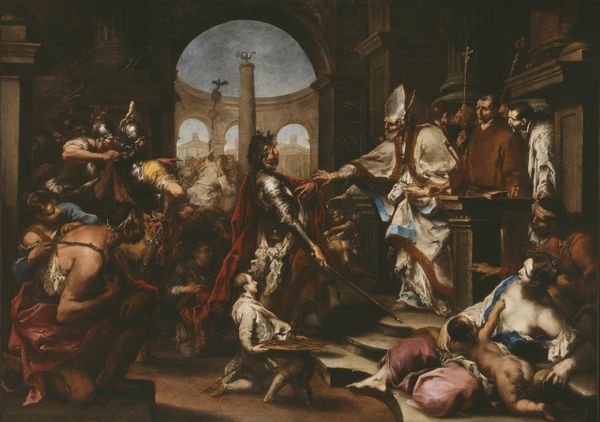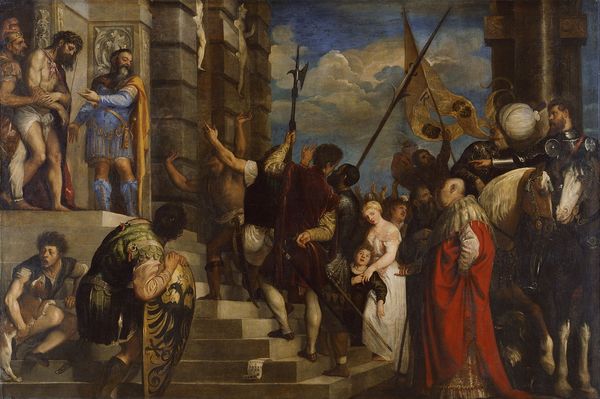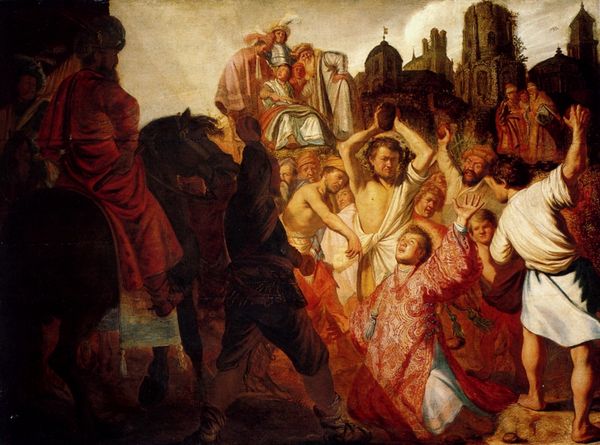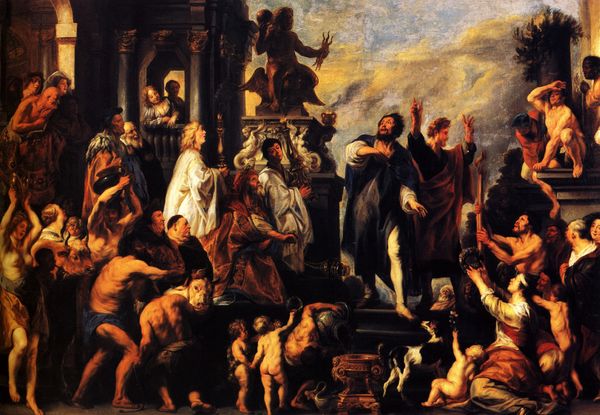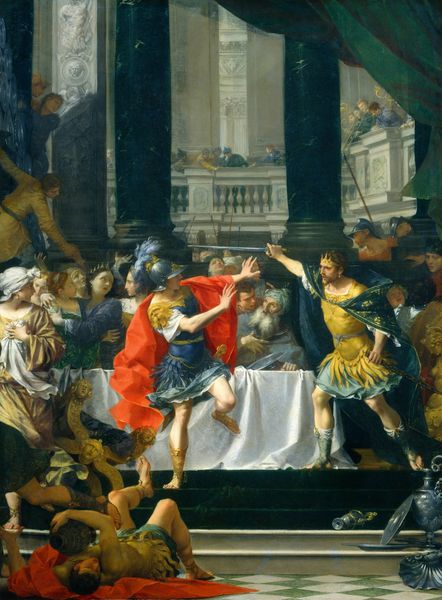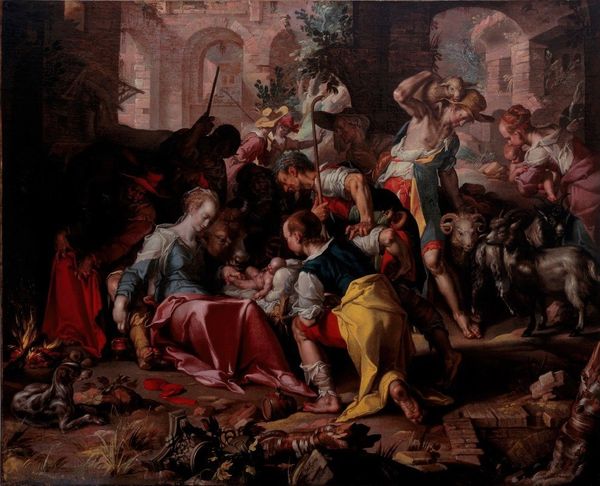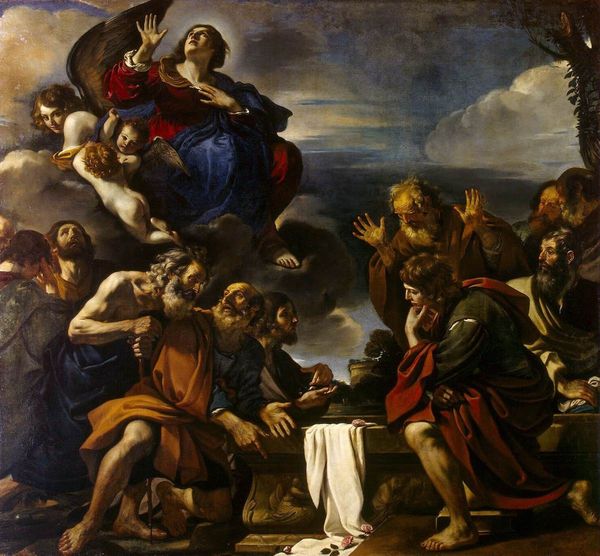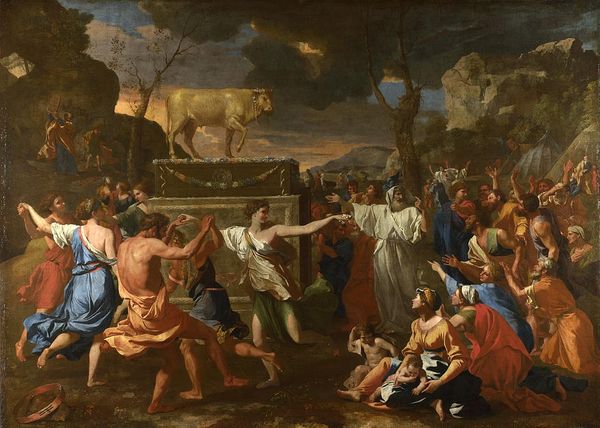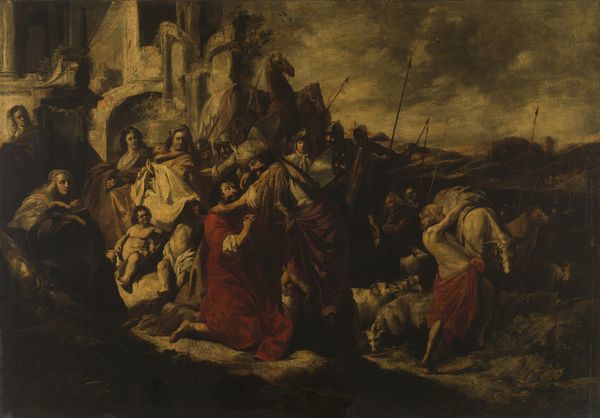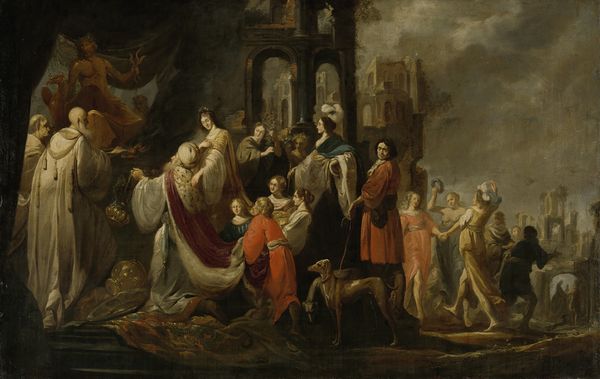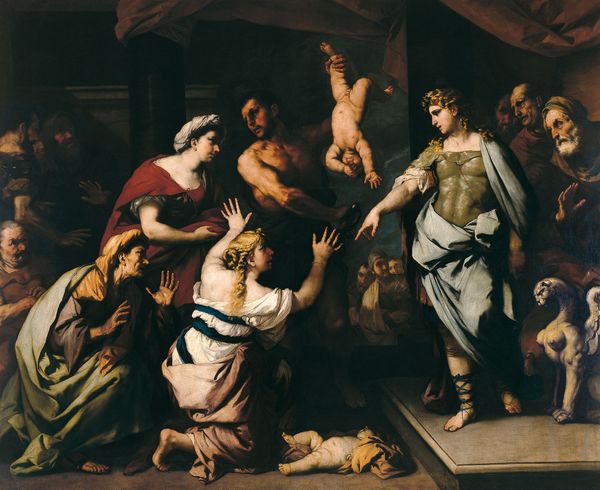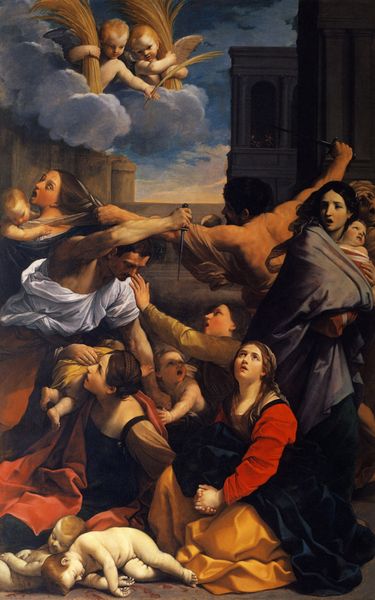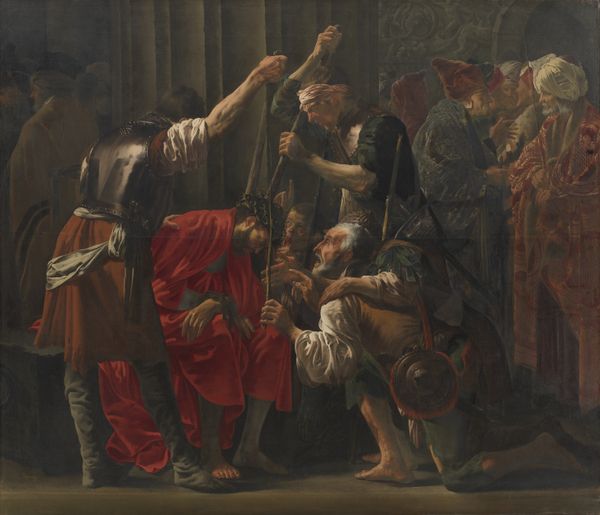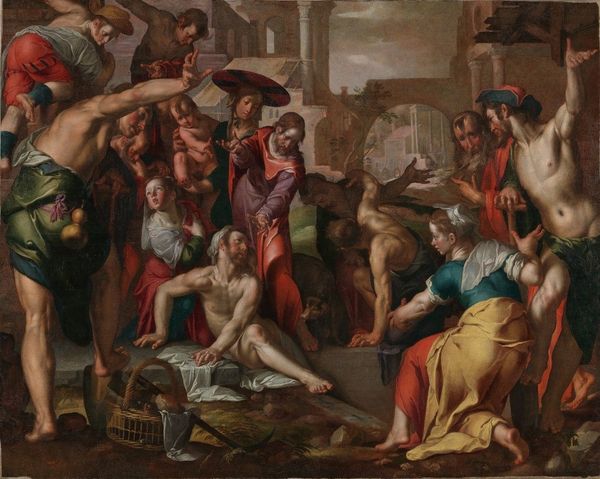
oil-on-canvas
#
abstract painting
#
possibly oil pastel
#
charcoal art
#
oil painting
#
earthy tone
#
coffee painting
#
underpainting
#
italy
#
brown colour palette
#
oil-on-canvas
#
watercolor
#
warm toned green
Dimensions: 70 7/8 x 108 1/4 in. (180.02 x 274.96 cm) (canvas)
Copyright: Public Domain
Jacopo Tintoretto painted "The Raising of Lazarus" in Venice, a city caught between the sacred and the profane, around the late 16th century. Tintoretto, like many Venetian artists, navigated the complexities of religious narratives, often using them to explore earthly themes. Lazarus’s resurrection isn’t just a biblical event here; it's a raw display of human emotion and social dynamics. The painting depicts the moment Christ calls Lazarus from the tomb, surrounded by onlookers expressing a mix of awe, disbelief, and terror. Note how the figures are arranged, the stark contrast between light and shadow, which heightens the drama and emphasizes the miraculous nature of the event. Look closely at Mary, kneeling and imploring. Her posture embodies the emotional intensity of the scene. The work challenges the Renaissance conventions of idealized beauty, leaning towards a more emotive, almost theatrical presentation. "The Raising of Lazarus" invites us to reflect on faith, mortality, and the human capacity for transformation. It reminds us that within the grand narratives of history, there are personal stories of loss, hope, and profound change.
Comments
minneapolisinstituteofart about 2 years ago
⋮
Jacopo Tintoretto ran a busy workshop in Venice, specializing in dramatic, complex religious paintings, which he produced at incredible speed. This crowded composition, with its daring foreshortening and elongated figures, is consistent with Tintoretto’s style. However, the overall quality of the execution suggests the work is by studio assistants rather than the master himself. The subject is the biblical story of Jesus raising Lazarus from the dead. A throng looks on as Lazarus, four days dead, emerges from his stone coffin. Lazarus became a protector saint of the sick, especially victims of the plague, and he was popular in Venice. This picture might be associated with the plague outbreak of 1576, which killed some 50,000 Venetians, one-third of the city’s population.
Join the conversation
Join millions of artists and users on Artera today and experience the ultimate creative platform.
